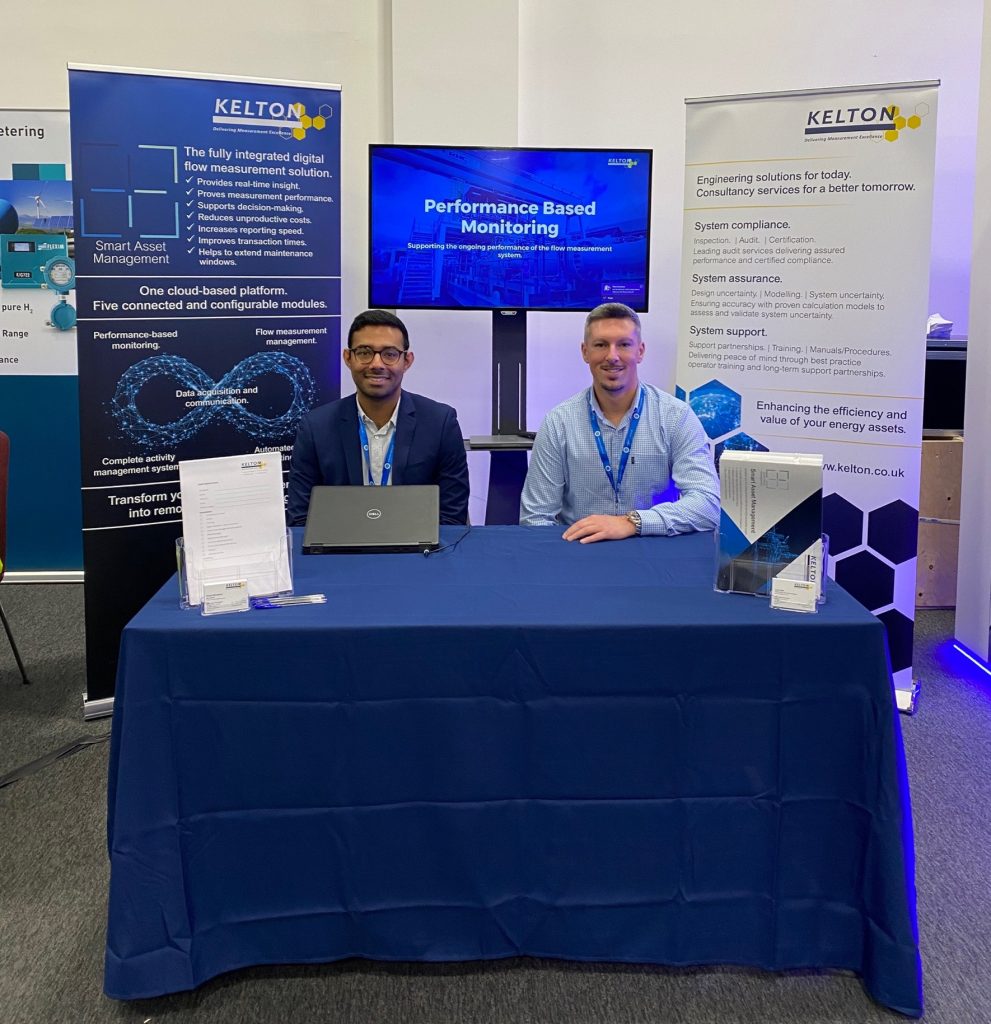Why this year’s Global Flow Measurement Workshop sets the agenda for a changing industry
From David Jeffs and Thiran Dhinakaran
Emissions reporting, reducing inefficiencies and the rollout of digital technologies at the heart of the event’s agenda.
This year’s Global Flow Measurement Workshop hosted in Aberdeen just last month set out to examine ongoing changes in the measurement industry juxtaposed against the energy transition.
The Workshop’s prevailing theme was technical innovation in flow measurement on the road to Net Zero, which examined how the sector must adapt to the new measurement challenges of Net Zero greenhouse gas emissions obligations in a year that has seen an intense uptick in interest in new oil and gas projects.
For these reasons this year’s Workshop felt particularly well-timed.
From a Kelton perspective, the Workshop provided the first face-to-face event of its type and scale in three years. As the foremost flow measurement event globally, it gave us the opportunity to communicate to audiences our recent work and approach to innovation with technical presentations from our leading sector experts Dean Wade and Craig Coull.

Thiran Dhinakaran and David Jeffs at the GFMW 2022, in Aberdeen.
Key findings & topics of discussion
This year’s Workshop enabled attendees to put faces to names as the great and good of the flow measurement and metering world assembled in
the granite city for the three-day event.
It was an opportunity to see and hear about the positive changes taking place in the energy sector particularly in terms of carbon reduction strategies and bringing hydrogen online. There was also considerable focus on the development of digital strategies based on emissions reporting and reducing
inefficiencies in flow measurement and metering systems.
The strong trend towards the pillars of the energy transition and digitalisation was noticeable and welcome throughout the Workshop. In fact, at least half of the event was focused on the energy transition itself, which included a significant component on hydrogen measurement. Virtual metering was a hot topic and was a focus for papers that were presented and subsequently discussed.
In the many discussions and side conversations Kelton had at the event it was clear that there is considerable industry interest in measurement efficiency and emissions reporting among major oil and gas players in the sector, which are keen to reduce uncertainty throughout their operations.
For Kelton, which has specialised in developing and rolling out these technologies in many regions across the world – notably the North Sea and the Middle East – it was encouraging that the focus on reducing system inefficiency is being backed by action and not just words as perhaps was the
case several years ago.
An example of this on the digital side comes from a discussion Kelton had in Aberdeen with a leading executive from the custody metering team of a major National Oil Company (NOC).
The company was highly interested in learning about the Kelton’s Smart Asset Management offer that transforms measurement data into remotely accessible insights. The executive was keen to learn how Smart Asset Management might help their company centralise metering data and potentially integrate cloud-based processing capabilities to increase overall asset efficiency. It is clear from the Workshop that many organisations still need to upgrade their systems to cloud-based data systems.
A further conversation at the Workshop, held with another NOC, focused on uncertainty reporting as the country in which they operate is changing the regulations to drive the sector towards more efficient operations.
The Kelton team was on hand to talk about how Smart Asset Management can reduce uncertainty calculations dynamically through Performance
Based Monitoring, which uses live data and, importantly, can take data directly from the flow measurement instruments.
If you can measure uncertainty on a ‘live’ basis, you can assess the drift of a particular instrument or an entire system throughout its lifetime – this
is a huge operational advantage saving time, money, resource and embedding further safeguards into a system.
Kelton also spoke to a major developer of FPSOs (Floating Production, Storage and Offloading unit) in Aberdeen with a view to installing dynamic uncertainty measurement solutions on their vessels.
As these vessels operate globally it would be a major development to integrate the latest flow measurement solutions as FPSOs are an important if often overlooked pillar of the energy sector.
A great event providing first-class industry insights
The Kelton team greatly enjoyed participating at the Workshop and thank organiser TUV-SUD for their continued work in putting the event together.
From a Kelton perspective, our company has been known for many decades as a leader in flow measurement and metering. The event reinforced our approach to invest early in digital innovation where Kelton software has been seen as the industry benchmark for many years.
It is no surprise that Kelton is growing its digital team given demand for digital services across the different regions where the company operates. Indeed, Kelton is actively expanding its digital offer in the Middle East, which will serve as a hub for software development.
The Workshop showed that the energy industry is moving rapidly towards a transition based on digital technologies and the integration of new cleaner forms of energy like hydrogen. These are positive developments that should be celebrated as they save costs and resource and improve the longevity and efficiency of assets.
We look forward to hearing your thoughts on any of the issues discussed above – feel free to drop us a line.
This article was drafted by David Jeffs, Digital Business Development Manager, and Thiran Dhinakaran, Sales Engineer, Kelton following their time at the Global Flow Measurement Workshop in Aberdeen.
